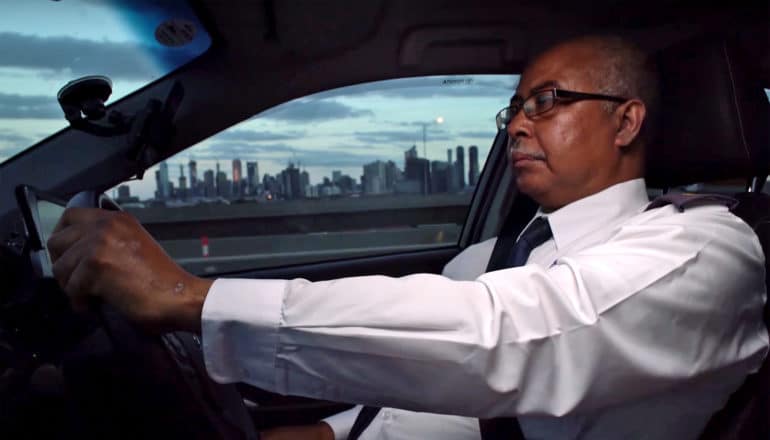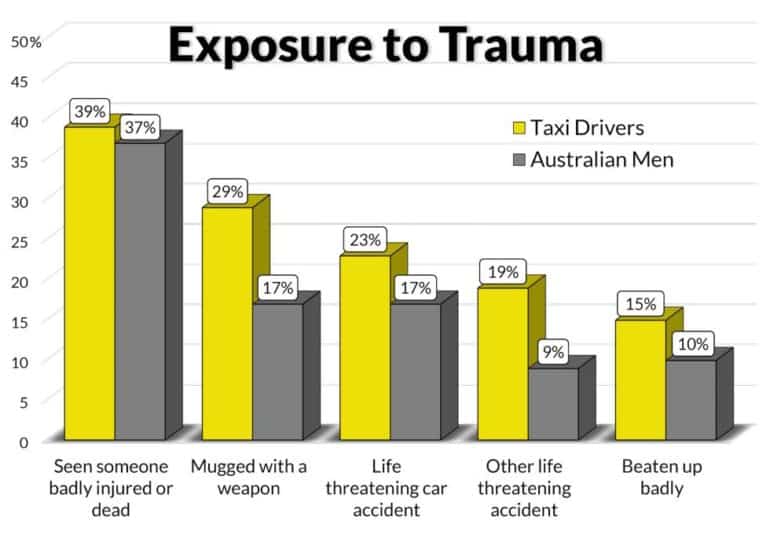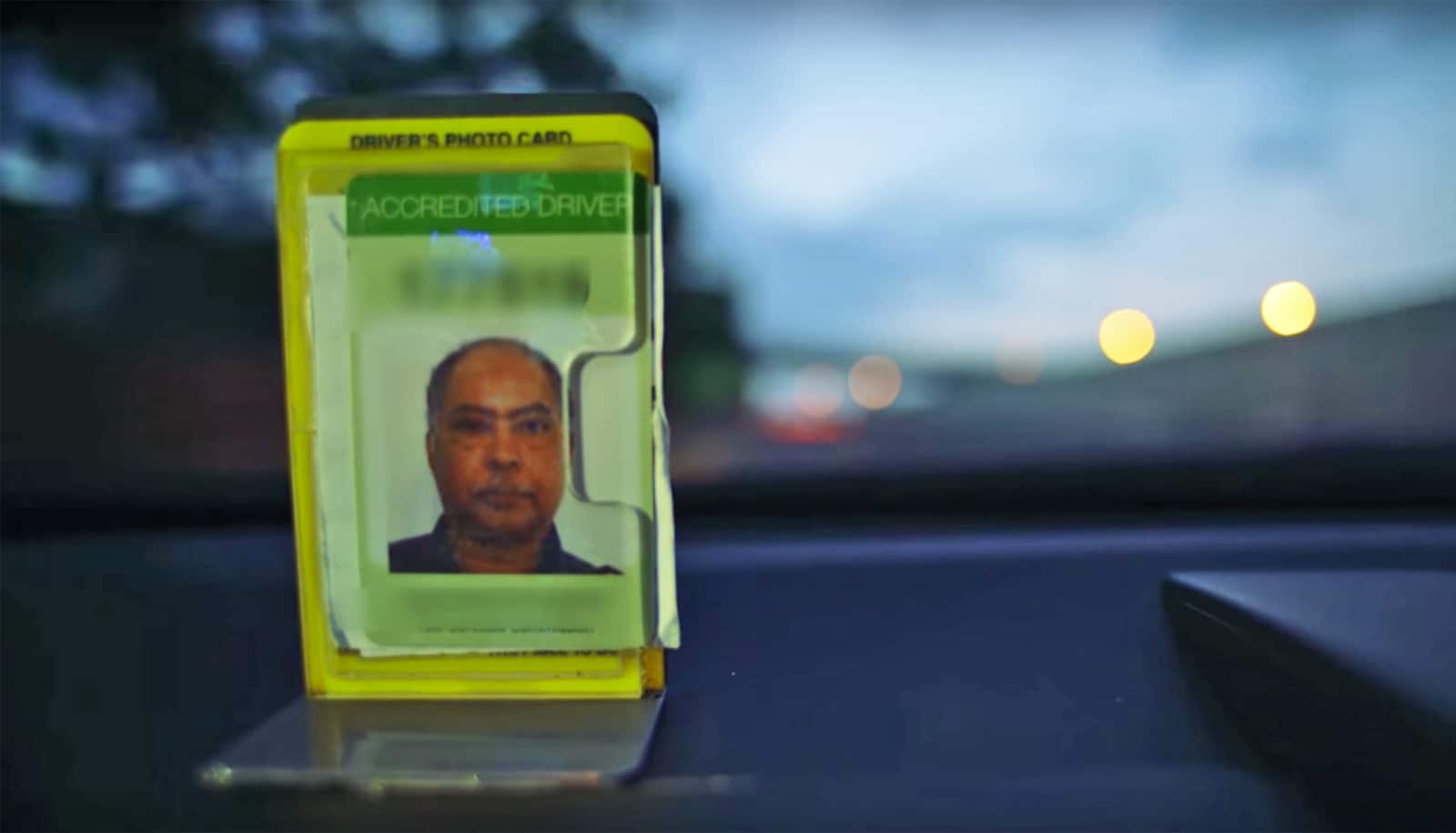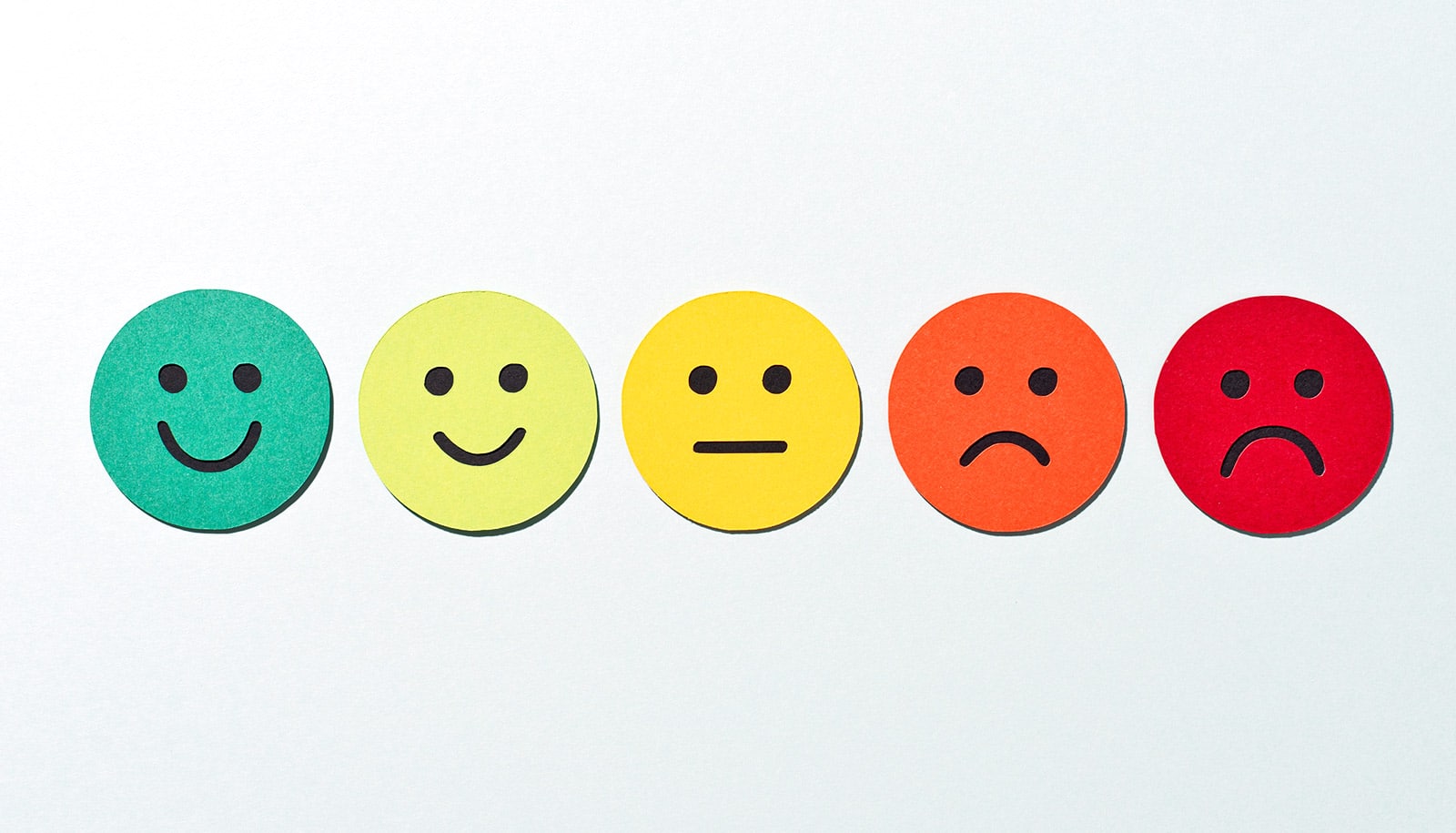A new app aims to combat high levels of psychological distress among cab drivers, who face long shifts, stress, and lack of exercise.
“Taxi drivers are a highly vulnerable population, reporting high rates of psychological distress,” says Sandra Davidson, a senior research fellow at the department of general practice within the University of Melbourne’s Faculty of Medicine, Dentistry, and Health Sciences.
“The majority of urban drivers are from non-English-speaking backgrounds and our research shows that they are working long hours, 60-70 hours a week in 12 hour shifts, that involve incredibly long periods of sitting down. But they are also a population that is hard to reach with health interventions because of their unique working environment.”

The app, which is still a prototype, offers physical and mental exercises tailored to whatever time a driver can spare, whether inside the car or out. It offers options for a two-minute session, a five-minute session, or a 10-minute session. It includes exercises similar to those recommended for long-haul flights, as well as muscle relaxation to combat anxiety. There are also mindfulness sessions such as listening to guided-imagery as a relaxation tool.
“The ultimate goal is improving the mental health of drivers, but we are focusing also on their physical health as a way to do that,” Davidson says. “Muscle tension can build up in drivers over long periods of time and that can lead into feelings of stress. We know that sitting down for long periods isn’t good for you so a lot of our exercises are about breaking up those long periods of sitting down.”
Drink water, open doors
The app also reminds drivers to stay hydrated and will link to useful information such as the location of public toilets. Some previous research has shown that taxi drivers are at higher risk of kidney and urinary tract infections because of the excessive time they spend seated and delaying going to the bathroom.
It will also include health tips from other drivers. One driver told the researchers that he lost just over 17 pounds just by getting out of the cab to open the door for his passengers and getting out to knock on the doors of booked addresses rather than simply honking his horn.

Reports of poor health
Davidson was initially shocked to find there was virtually no research on the mental health of taxi drivers in Melbourne or anywhere else around the world. She was further shocked to discover how bad their mental health appeared to be.
When she carried out a mental health survey of over 200 drivers waiting for fares at Melbourne Airport’s taxi holding yard, she found that almost two-thirds of respondents reported “high psychological distress.”
Your might be working yourself to death (really)
High psychological distress is indicative of a potential serious mental health problem, and was reported at a rate that was five times the average for Australian men. Of these almost a quarter reported that they hadn’t seen a health professional of any kind in the last 12 months. But almost a third of drivers rated their health as only fair or poor, twice the rate for average Australian men.
“We know from other research that people who rate their health as only fair or poor, really do have poor health, and are at risk of future long term negative health outcomes,” Davidson says.
She says taxi drivers face a trio of high-risk factors, including generally having low incomes, doing shift work, and often being recent migrants. The majority of respondents to the survey were migrants, of which half had settled in Australia in only the last ten years. But she was nevertheless surprised at the high rates of self-reported stress. “The rates of psychological distress they are reporting are huge.”
The survey work also revealed that taxi drivers are more likely to have been beaten up, mugged with a weapon, and have experienced a life threatening accident when compared with average Australian men, though these experiences may not necessarily have happened on the job. Davidson says driving the night shift corresponded with drivers being more likely to report high levels of psychological distress.

An app to fit the job
The challenge then for the researchers was to come up with an intervention that could fit around the unusual working lives of the drivers, while also appealing to them and being easily accessible to a group where language is a barrier.
“Taxi drivers are an overwhelmingly social bunch—it is the wrong profession for an introvert.”
Davidson found that almost all the drivers used smart phones to help pass the time, mainly using them for staying in touch with friends and family and for searching the web and social media. But they rarely used technology when they were at home.
She also found that they were more comfortable talking about physical health issues rather than their mental health. It was clear that such a group was unlikely to use traditional online mental health sites.
“We needed an intervention that could work within the unpredictable breaks they have between jobs, and that could be accessible through their smart phone. We knew they weren’t going to take time out to go to a quiet library and spend a lot of time on a mental health site or spend that time when they are at home when they’d rather be playing with their kids or catching up with friends.”

Although the researchers considered creating a video game app, their research didn’t support that path. Too few of the cab drivers already played games regularly.
The mental health app also provides an opportunity for the researchers to leverage the natural inclination of drivers to socialize together when out on the job. The researchers are working to add a section to the app where drivers can share health advice among themselves. Such a feature will need to be carefully curated since the researchers have a duty of care to ensure the app is giving out the right advice, but Davidson is committed to making the feature work.
“Taxi drivers are an overwhelmingly social bunch—it is the wrong profession for an introvert. So what we want to do is tap into that social connectedness that taxi drivers have.”
The prototype of the app is scheduled to be ready for testing among drivers in March and Davidson plans to follow up the testing with feedback surveys and focus group interviews to make sure that they come up with an application that not only improves the health of drivers, but also gets used by them.
The Melbourne Networked Society Institute at the University of Melbourne and the Shepherd Foundation support the research.
Source: University of Melbourne



